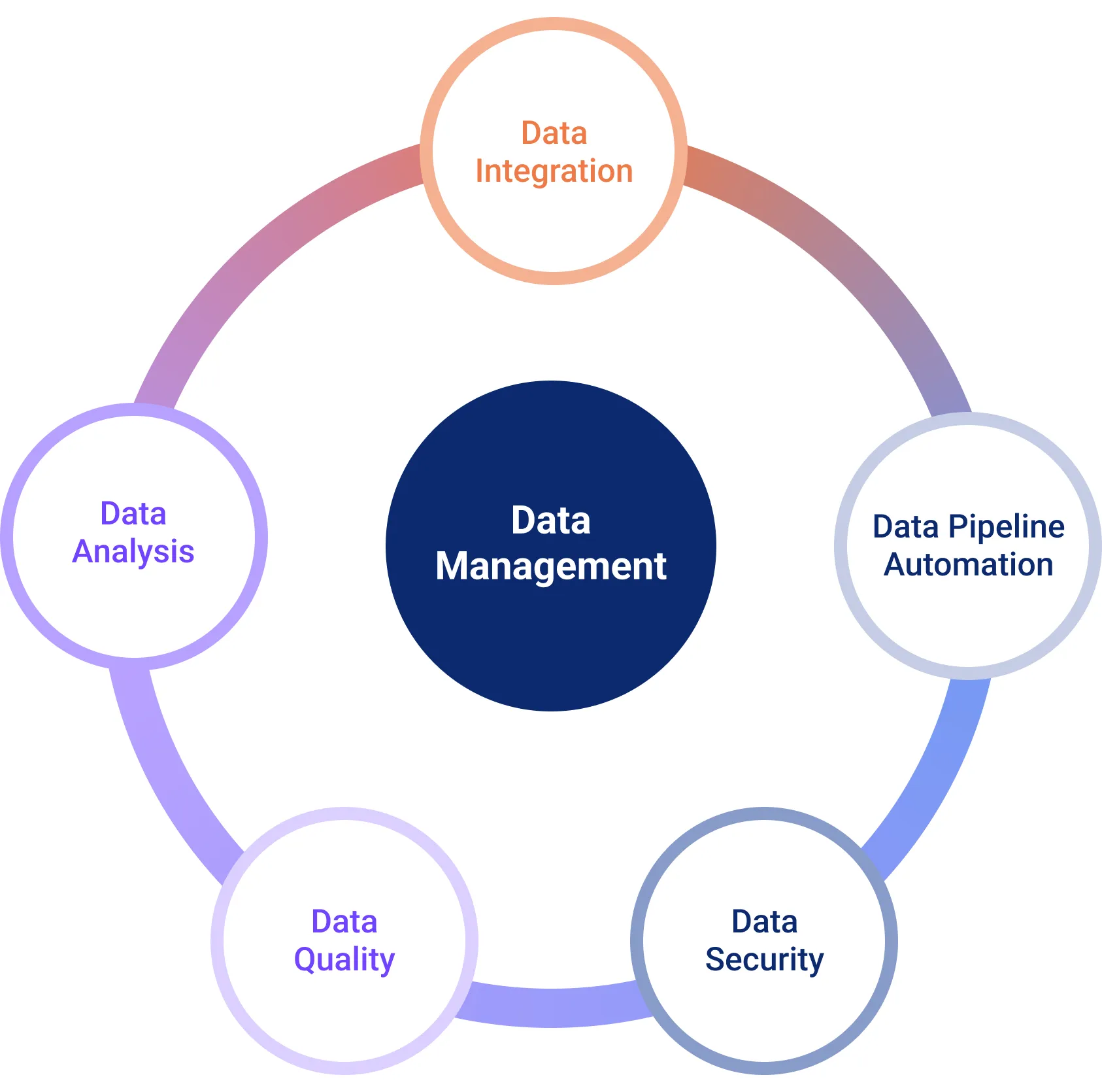Data can contribute to rapid business growth, but only a small mistake can lead to significant losses for a company, said Mr. Le Huu Hoang Gia, co-founder and Chief Technology Officer (CTO) of Beehexa Corporation, at the Vietnam Web Summit 2023 event. In this article, let’s explore the importance of data management in selling online and how to keep it clean.
What is data management?

According to Gartner, data management is all methods, technicals, or tools that can access and deliver data across a wide range of topic areas and structure types in business. It will satisfy the data consumption needs of all applications and business processes.
For example, data governance, data quality assurance, data integration, data storage, data security, and data lifecycle management. Effective data management is essential for businesses to derive insights, make informed decisions, and achieve their goals.
Why is data fragmented in business?
At the Vietnam Web Summit 2023, Mr. Hoang Gia stated that several companies were struggling with data management across various and disconnected platforms. For example, a business not only uses eCommerce platform solutions to build its online store but also uses multiple other solutions, such as ERP, CRM, POS, accounting, and other internal work management tools.
As you can see, each platform will work individually to process the data. Without the connection between them, data is fragmented in various business systems, and even some information is duplicated. As a result, enterprises must store massive volumes of duplicate and disparate data, leading to overloaded and ineffective data management.
According to the Connection Benchmark Report 2024 of MuleSoft, which was acquired by Salesforce in 2018 for $6.5 billion, on average, medium-sized businesses use approximately 1016 software applications. However, only about 30% of these applications are integrated, and the effectiveness of these connections remains unclear.
The top 4 challenges of data fragmentation that businesses would face are:
- Waste a couple of days compiling a comprehensive and valuable report.
- It’s difficult to maintain the accuracy of the data in an ever-changing digital transformation.
- Data formats are inconsistent across systems within the business.
- The weakness of data security can create loopholes for external risks.
How can small mistakes in data management lead an organization to rapidly decline?

The correct way to use data can support rapid business growth, but only a small data management mistake can lead them to fall.
Let’s look at your store! How many times did your customers complain that the items were out of stock but the website status was in stock? Moreover, the inconsistent prices between online and offline can also have a significant impact on customer experiences.
These mistakes can result in inaccurate financial reporting, flawed customer insights, and compromised inventory management. Consequently, businesses may experience decreased customer satisfaction, a loss of revenue, and damage to their reputation. Moreover, failure to comply with data protection regulations can lead to legal liabilities and financial penalties. Without timely and accurate data, organizations may struggle to adapt to changing market dynamics, make informed strategic decisions, and maintain a competitive edge.
Therefore, we can understand the importance of data management effectiveness and consistency. If we have any problems, we must spend less time solving them, leading to the breakdown or halt of business operations.
How to effectively manage data when selling online?

As for the role of data management, some businesses often tend to recruit more employees to import, export, and process data, ensuring that it is clean and valuable. However, it takes time to train them to comprehend the company’s objectives and vision. Besides, they may not get used to modern software for seamless data between multiple systems.
So, let us introduce a new method, maybe, to manage data when selling online: AI auditing.
What is AI auditing?
AI auditing involves using artificial intelligence (AI) to assess, monitor, and ensure data integrity, security, and compliance within organizations. It uses AI algorithms to automate auditing tasks, identify anomalies, predict risks, and enhance auditing processes across various domains such as finance, compliance, cybersecurity, and data governance.
Data management with AI auditing
In the current digital transformation, AI products tend to prioritize larger tasks, such as predicting customer demand to recommend products, segmenting customers to offer correct services, detecting spam, and improving natural language processing functions or virtual assistants.
Cultivating an accurate mindset about data and the importance of data management in business is critical for long-term growth. Business leaders need to understand data and analyze it from many different perspectives carefully and consistently, while also paying attention to data security. In this context, GDPR compliance solutions are essential for ensuring that organizations manage and process data in line with privacy regulations, helping avoid legal penalties and maintain user trust. In addition, understanding and leveraging the benefits of the latest technology platforms, such as integrating data between multiple systems via APIs, to establish connections and standardize data also needs investment and attention.
Besides, to effectively utilize the latest technology platform, organizations should invest in their staff, such as by discovering AI, improving knowledge using technical tools, learning data, and so on. It plays an important role in allowing them to explore and leverage data effectively while limiting minor errors that can lead to mistaken decisions.
Conclusion
In conclusion, combining AI auditing with integration platforms provides a robust solution for efficient data management in online selling. AI auditing automates tasks, ensures data integrity, and enhances compliance, while integration platforms centralize data and streamline operations. Together, these technologies optimize inventory management, improve customer experiences, and drive sales growth. Embracing these solutions is crucial for staying competitive and thriving in the dynamic e-commerce landscape.
